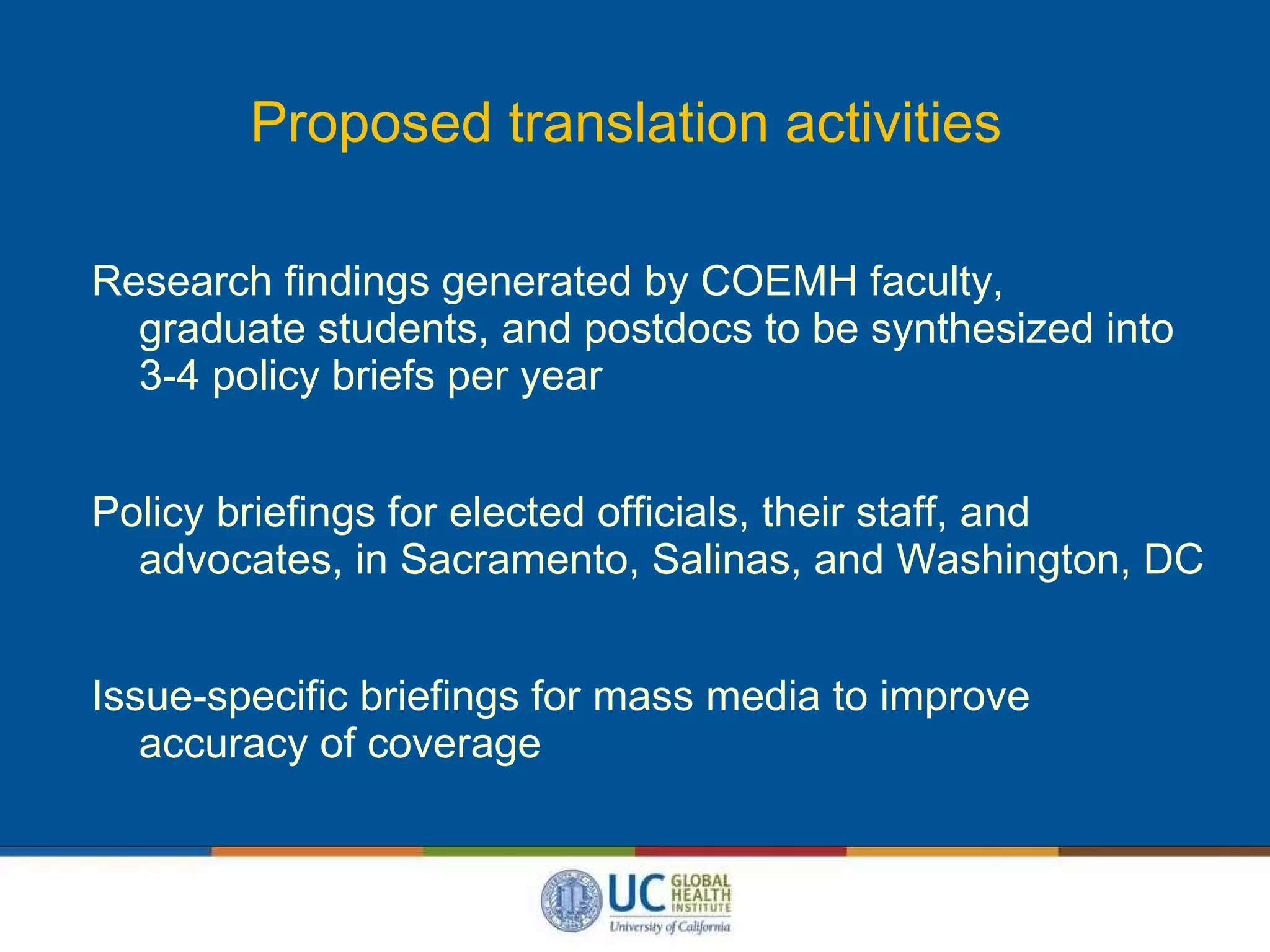The Center of Expertise on Migration and Health (COEMH) aims to improve health and eliminate disparities for migrants worldwide through research, education, and policy work. It is governed by a steering committee and working groups across 10 UC campuses. Research focuses on how migration impacts health outcomes. A signature project examines family dynamics and access to care for immigrant families. COEMH also contributes to education programs, holds training workshops, and seeks to translate research into policy briefings to influence decision-makers. International partnerships in Mexico, Central/South America, Europe, and Asia further global work on migration and health issues.


















